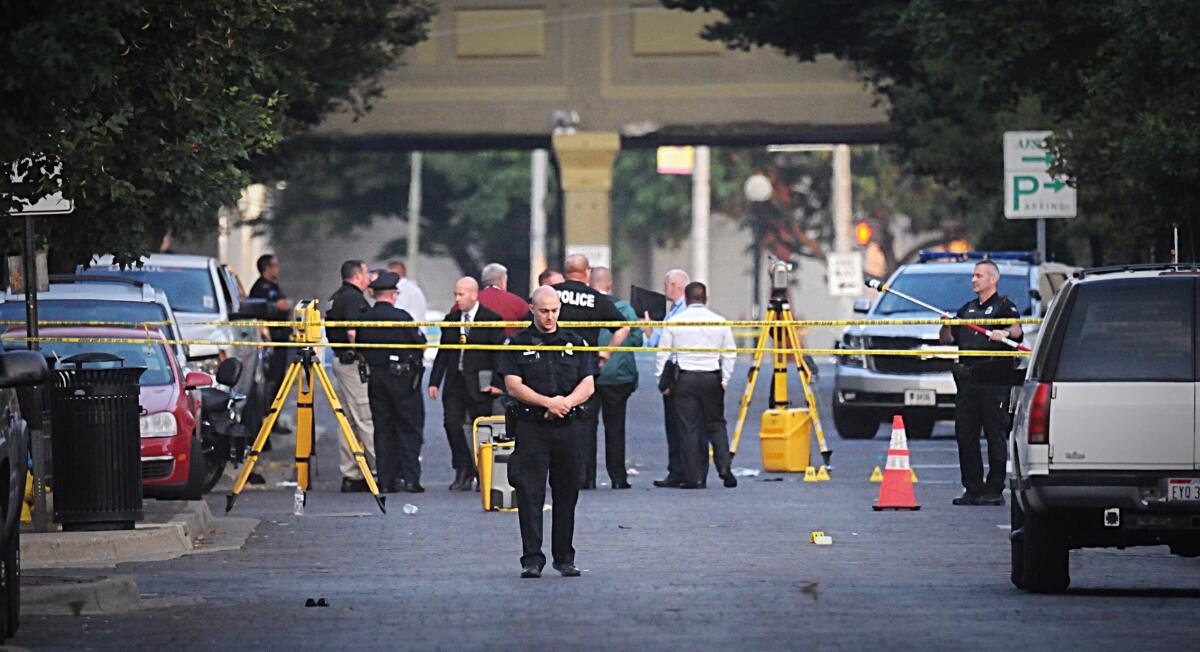Letters to the Editor: Mass shooters are almost always men. Why don’t we talk about this?

- Share via
To the editor: Criminology researchers Jillian Peterson and James Densley built a database on mass shooters going back to 1966, yet they do not mention the one characteristic that links almost every one: They are white men.
Why is there no discussion at all about white nationalism or toxic masculinity, rather than exclusive focus on abusive childhoods, bullying at school and mental illness? Clearly these last factors are important, but to ignore the shooters’ shared identities as white males is to miss what may be the most important one.
Our culture certainly glorifies violence, especially among young men, who are expected to be strong and macho. With our current president encouraging hate for “others,” it is hardly surprising that these young men could be persuaded to resort to violence.
With easy access to weapons of war, they can accomplish maximum killing with minimal effort and have their names amplified by the media.
Linda Light, Huntington Beach
..
To the editor: I am glad for this research. Still, I worry about the problem’s presentation.
I wonder how people reading this piece might respond to “mental health.” How do we think about what can and can’t be done, since we often cede “health” to medical experts, and minds (the “mental” part) are notoriously hard to change?
The early contributing factors identified are first and foremost “social behaviors” that have critical effect on developing “mental” functions. The exposure to violence in childhood that the authors mention is a social issue that leaves a legacy across generations.
We need to intervene when a shooter is about the pull the trigger, but we must also have interventions early in a child’s development. Children must be protected from interpersonal violence, perpetrated by those who are supposed to lovingly care for them.
The sources of violence need early moral and ethical interventions so late interventions become unnecessary.
Barbara Eurich-Rascoe, Pasadena
The writer is a clinical psychologist.
..
To the editor: We should be grateful for this very important research on factors associated with mass shootings. It’s crystal clear that this is a complex problem defying simplistic solutions.
But simplistic solutions — or more accurately, no solutions — are what we get in these hyper-partisan times that seem to block anything approaching subtlety and nuance.
Is the problem mental illness or the availability of guns? Well, as this research shows, both play a role. But then so do childhood exposure to violence and other trauma, a crisis or triggering event, and 24-hour news and social media that stoke both fear and fascination.
Sadly, we can’t count on our political leaders to come up with rational responses. They live and die by scoring political points. Nuance and subtlety play no role.
Claude Goldenberg, Seal Beach
More to Read
A cure for the common opinion
Get thought-provoking perspectives with our weekly newsletter.
You may occasionally receive promotional content from the Los Angeles Times.









